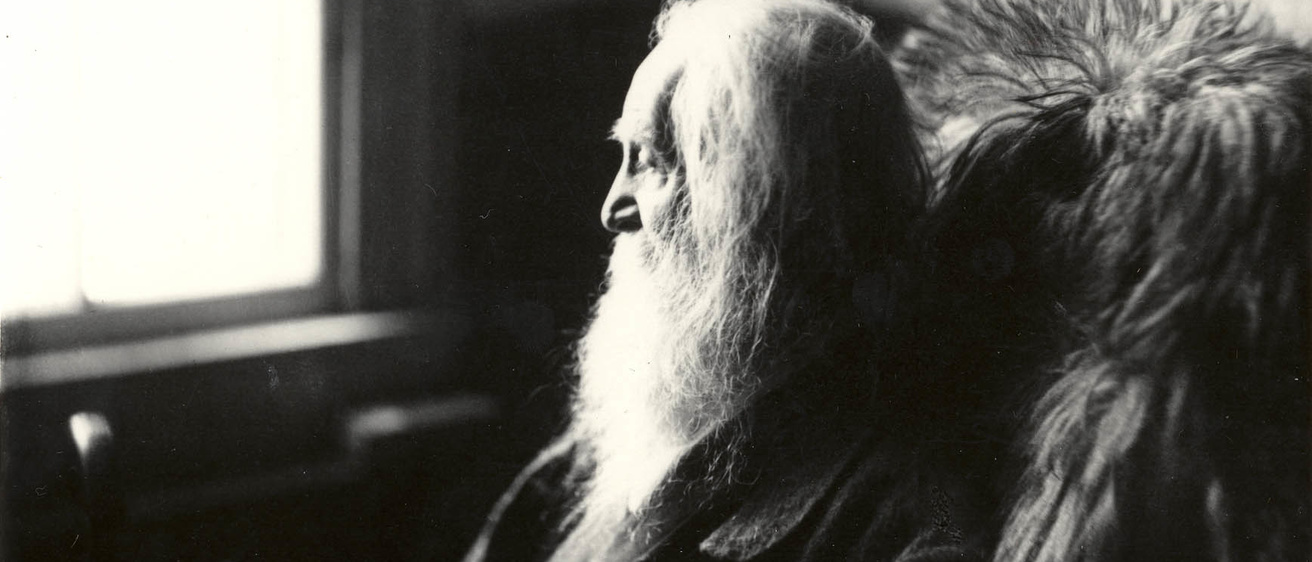Breadcrumb
- Home
- Song of Myself
Song of Myself

Song of Myself
Main navigation
Overview
Welcome to the WhitmanWeb’s “Song of Myself," where we present the poem in fifty-two weekly installments, with commentaries and questions in English, also translated into Arabic, Persian, Russian, and Spanish; recordings of the poem in Arabic, English, Persian, and Russian; and photographs of the poet and his era.
The launch, on the autumnal equinox of 2012, featured the poem in nine languages: English, Chinese, French, German, Persian, Portuguese, Russian (in two versions), Spanish, and Ukrainian. Arabic (in two versions), Malay, Polish, Romanian, Khmer, Kurdish and Filipino translations followed in 2013 and 2014, and two versions of translation into the Turkish in 2021. We hope additional languages will appear in the future, and welcome suggestions from our readers.
Think of this project as a year under the tutelage of the father of American poetry, “one of the roughs, a kosmos,” which uses the tools and resources of another cosmos, the Internet (and particularly the Walt Whitman Archive), to have a conversation, across languages, borders, and time zones, about the multiple meanings of this foundational text. “I am large, I contain multitudes,” Whitman wrote. And we hope that the WhitmanWeb will inspire a multitude of new responses to, and ideas about, this crucial poem.
A word about the format. Each week, Professor Ed Folsom, co-director of the Whitman Archive, and Christopher Merrill, director of the International Writing Program at the University of Iowa, wrote short commentaries, a foreword and an afterword to each section, and posed a question inspired by the reading. The readers answered these in the Comments section of each page, or on the WhitmanWeb’s social media pages.
In February and March, 2014, professors Folsom and Merrill then co-taught an interactive online study of "Song of Myself" in MOOC format (Massive Open Online Course). The video lectures from Every Atom: Walt Whitman's "Song of Myself" remain accessible online. A book version of Whitman’s poem, complete with Ed Folsom’s and Christopher Merrill’s commentaries on each section, is available from the University of Iowa Press.